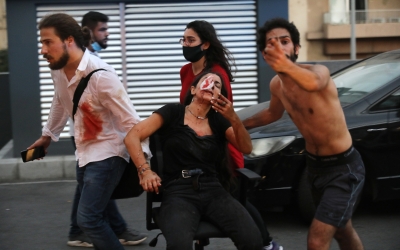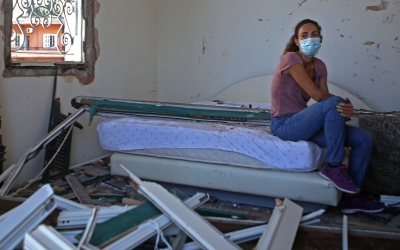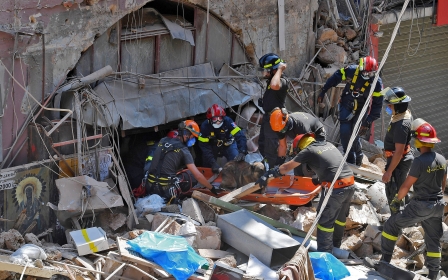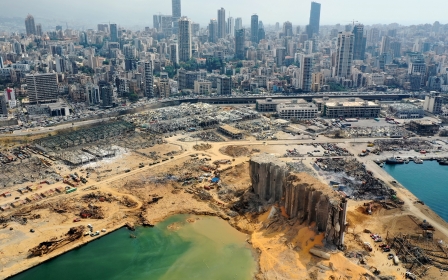Beirut explosion: France's Macron calls for speedy progress to prevent 'chaos' in Lebanon
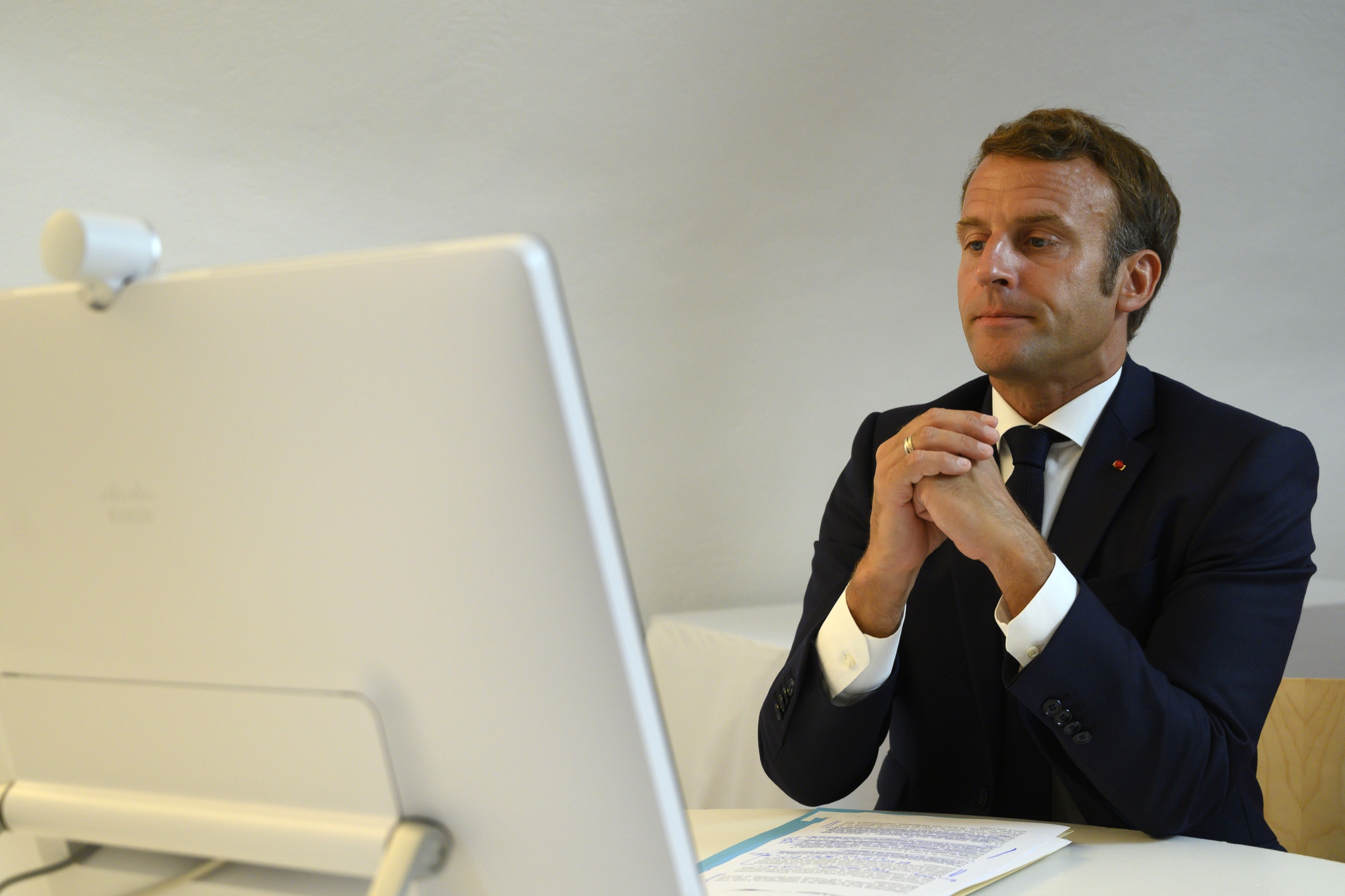
France's president warned of "chaos" in Lebanon if the international community failed to step up to provide aid to the country in the wake of the devastating port blast on Tuesday.
Emmanuel Macron made the comments as he hosted an emergency virtual aid conference for the country on Sunday, remotely attended by world leaders, including US President Donald Trump. The conference later raised pledges worth nearly €253m ($298m) for immediate humanitarian relief, Macron’s office said.
At the same time as promising aid, the conference also called for reform in Lebanon.
"Assistance should be timely, sufficient and consistent with the needs of the Lebanese people," a statement said, adding that help must be "directly delivered to the Lebanese population, with utmost efficiency and transparency".
'We must all work together … It is the future of Lebanon that is at stake'
- French President Emmanuel Macron
The donors were prepared to help Lebanon's longer-term recovery if the government listened to the changes demanded by the country's citizens, the statement said.
New MEE newsletter: Jerusalem Dispatch
Sign up to get the latest insights and analysis on Israel-Palestine, alongside Turkey Unpacked and other MEE newsletters
"The objective today is to act quickly and effectively to coordinate our aid on the ground so that it goes as efficiently as possible to the Lebanese people," Macron had earlier told the tele-conference, which was also attended by Lebanon's President Michel Aoun, UN aid coordinator Mark Lowcock, representatives of the World Bank, the Red Cross, the IMF, the EU, the Arab League and several Middle Eastern leaders.
The IMF's managing director, Kristalina Georgieva, laid out the reforms expected of Lebanon, including steps to restore the solvency of public finances and the soundness of the financial system, and temporary safeguards to avoid continued capital outflows.
Even before the explosion, a financial crisis had led Lebanon to enter negotiations with the IMF in May, after it defaulted on its foreign currency debt. Those talks were put on hold in the absence of reforms.
“We are ready to redouble our efforts. But we need unity of purpose in Lebanon - we need all institutions to come together determined to carry out much-needed reforms," Georgieva said.
"Commitment to these reforms will unlock billions of dollars for the benefit of the Lebanese people. This is the moment for the country’s policymakers to act decisively. We stand ready to help," she added.
Georgieva also called on Lebanon to take steps to reduce the protracted losses in many state-owned enterprises and expand a social safety net to protect the country's most vulnerable people.
Lebanese people enraged by the official negligence blamed for Tuesday's explosion, which killed at least 158 people, wounded some 6,000 and left an estimated 300,000 homeless, have taken to the streets in anti-government protests that saw clashes with the army.
Macron, who had been the first world leader to visit Beirut after the blast, said it was "up to the authorities of the country to act so that the country does not sink, and to respond to the aspirations that the Lebanese people are expressing right now, legitimately, in the streets of Beirut.
"We must all work together to ensure that neither violence nor chaos prevails," he added. "It is the future of Lebanon that is at stake."
Macron also warned that "those who have an interest in this division and chaos, it is the powers that would somehow want to put the Lebanese people at risk". He did not name names.
An 'emergency response framework'
The French president repeated his call for political and economic reforms, which he said "would allow the international community to act effectively side by side with Lebanon for the reconstruction".
Prime Minister Hassan Diab said on Saturday that he would call for early elections.
An "emergency response framework" drafted by the United Nations said $66.3m was needed for immediate humanitarian aid, including health services for the injured, emergency shelter for those whose homes were destroyed, food distribution and programmes to "prevent further spread of Covid-19".
Phase II of the plan will require $50.6m to rebuild public infrastructure, rehabilitate private homes and prevent disease outbreaks.
It said at least 15 medical facilities, including three major hospitals, sustained structural damage in the blast, and extensive damage to more than 120 schools may interrupt learning for some 55,000 children.
Thousands of people are in need of food, and the blast interrupted basic water and sanitation to many neighbourhoods.
Speaking in Beirut on Thursday, Macron said clear and transparent governance will be put in place to ensure all international aid "is directly channelled to the people, to NGOs, to the teams in the field who need it, without any possible opacity or diversion".
'Everyone wants to help!'
Trump, confirming his attendance at the conference, tweeted on Saturday that "everyone wants to help!".
Israel, with which Lebanon has no diplomatic relations, was not on the list of participants, nor Iran, which wields huge influence in Lebanon through the Shia group Hezbollah.
Key Arab states in the Gulf, including Saudi Arabia, Qatar, Iraq and the UAE were represented, as were Britain, China, Jordan and Egypt.
Macron, who hosted the conference from his summer residence on the Mediterranean, has said he would return to Lebanon on 1 September to check progress.
Middle East Eye delivers independent and unrivalled coverage and analysis of the Middle East, North Africa and beyond. To learn more about republishing this content and the associated fees, please fill out this form. More about MEE can be found here.


